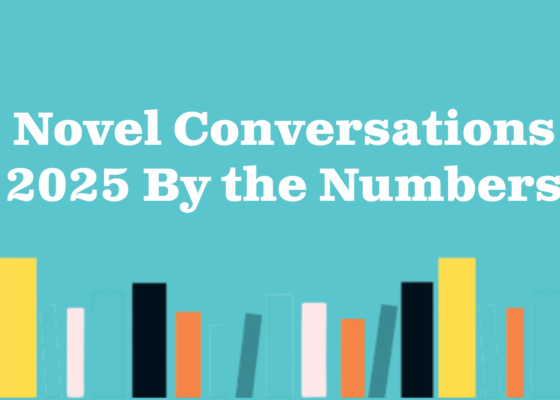What We Learned From The Quantum Leap Poetry Tour With Tracy K. Smith
November 30, 2018More than 900 people attended events in Greencastle, Hanover, Indianapolis and Shelbyville as part of Indiana Humanities’ Quantum Leap Poetry Tour with U.S. Poet Laureate Tracy K. Smith. It was…
More than 900 people attended events in Greencastle, Hanover, Indianapolis and Shelbyville as part of Indiana Humanities’ Quantum Leap Poetry Tour with U.S. Poet Laureate Tracy K. Smith. It was the perfect way to wrap up our two-year Quantum Leap program, and we’re thankful to our moderators Adrian Matejka, Dr. Dee Goertz and Dr. Joseph Heithaus for helping to guide the conversations.
At Indiana Humanities, we like to follow up events by taking a moment to reflect on what we learned and to help provide insight for those who couldn’t attend. Below are 10 things we’ll continue to ponder in the weeks and months ahead:
- Poetry is on the rise. Adrian mentioned a recent NEA study that shows that poetry is being read more right now than it has been in the last 15 years. This is especially true among millennials and people of color.
- Poetry gives us a toolkit for fixing things. Tracy discussed the utility and possibilities of poetry that she has continued to discover during her two-year stint as Poet Laureate. The superpowers are seemingly endless—poems give us the ability to tell stories, discover more about ourselves, think about what we care about, identify what’s broken in our lives and in the world, and work toward change. Poetry can amplify our curiosity and help us learn about other people and their lives. It allows us to consider what we feel, what we’re grateful for, and ask ourselves hard questions like, “Why is it so hard to love my neighbor?”
- Art and science are closer to each other than we give them credit for. “I think the way we think and talk about science continues to move closer and closer to our concepts of art and belief,” Tracy said. Her admiration for science is palpable and she thinks scientists are so good at metaphors, that they’re practically poets. She also acknowledged how scientists and artists can learn from each other—there’s a vulnerability in art that is helpful in science, and a skepticism in science that can help artists flourish.
- Community is important for artists and especially for poets. Tracy’s advice to a young writer in the crowd stressed the importance of finding community—of other writers to read, of family and friends to support you, and of mentors to help sharpen your craft. She gives a lot of her own formative credit to the Dark Room Collective, a community of black poets that formed in Boston in the 1980s and 90s.
- Writing a poem should take us somewhere. Tracy views the art of crafting a poem as a process of discovery. When a poem is finished, we shouldn’t be in the same place we were when we started. The process should have brought about greater understanding, careful contemplation, a different or changed perspective, or new ideas. Often, Tracy writes a poem because she’s trying to make sense of something (her father’s death), or relive something meaningful or worrisome (hate crimes). What can this poem help me learn?, she asks as she writes.
- It’s okay to experiment with poetry. It’s fine to follow forms and structures, and let them give you boundaries, but it’s also important to improvise and experiment with sound, point of view and context. That’s why she uses letters, news articles and even historical documents like the Declaration of Independence. Sometimes that freedom allows you to make a discovery you didn’t realize was there.
- Poetry—especially hers—can help us eliminate binaries. Her poetry crosses into strange places, which can help us think differently about things like life and death, black and white, victim and perpetrator. “I don’t think you make good art out of certainty,” she said. So sometimes, poems are illogical and ask questions but don’t answer them. Poetry allows us to believe in many possibilities, not either/or.
- Readers are very good at making poems useful to themselves. As she’s toured rural America and visited places like rehab centers, nursing homes and prisons, Tracy’s seen up close that anyone, from any background and education level, can engage with poetry and make profound observations. “Poems are not accidents,” Tracy told us; trust what you hear and notice when you read them.
- She’s committed to visiting rural communities because, in her words, she feels “certain that we have more to say to each other than the frantic outbursts” that the media coughs up. Indiana Humanities shares this belief and looks forward to launching our next theme to explore the ways we connect to each other across urban, suburban and rural lines.
- “Poems are machines,” Tracy observed. They have systems and laws that govern them. There are limitations that allow something to bubble up and take shape. They do work in the world. As we at Indiana Humanities wrap up two years of programs exploring the intersection of the humanities with science and technology, it was a beautiful metaphor to consider. “Poetry is the kind of science I can practice,” Tracy said.
If you’re interested in learning more about Tracy, she has been profiled in a number of outlets, most recently in Belt Magazine and Smithsonian Magazine, both of which are worth a read. She also has a new podcast called “The Slowdown.” Listen in.
The Quantum Leap Poetry Tour was made possible thanks to the partnership of Hanover College, DePauw University, the City of Shelbyville, The Indianapolis Public Library and Brick Street Poetry, with the generous support of Eskenazi Health.
P.S. If you need a gift idea for your mom like Adrian did, Tracy suggests Electric Arches by Chicago poet and sociologist Eve L. Ewing.


